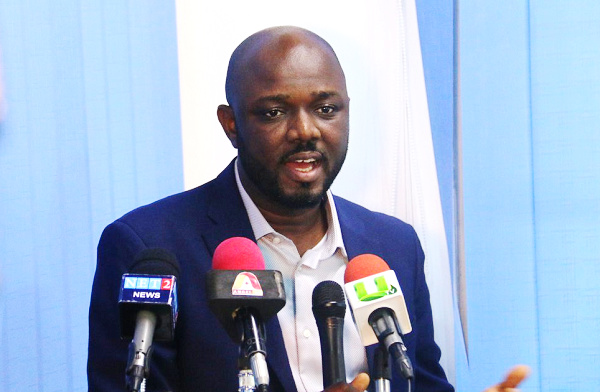Executive Director of Africa Centre for Energy Policy (ACEP), Ben Boakye says government appears to have been telling the public a different story from what it is doing with its gold-for-oil policy.
He added that despite the government’s explanation that there was a government-to-government agreement to trade gold for oil instead of the dollar, this was not the case.
In an interview with journalists, Ben Boakye stated that it was determined that such an arrangement never existed.
He said it was not enough to account for the volumes of oil that have been imported and what that essentially means is that some dollars and some other currencies are being used to procure oil for our consumption
He said that then questions the gold-for-oil policy initiated by the government since we were told that there were third parties that were going to buy the gold and pay the money into an escrow account so we could use the money to procure the oil.
“But it turns out that there are much deeper transactions that the public is not being told about because we do know that BOST had signed contracts with suppliers of oil products. So if we had signed contracts with suppliers of oil products, how did the interface work with the gold-for-oil policy the government had?
Beyond that, we do know that the gold purchase programme is not going well. Bank of Ghana started giving money to PMMC to buy gold, they made losses and they decided not to proceed. So they’ve (PMMC) not been given money to buy the gold.”
He further revealed that at a point, for almost a month, the central bank had not provided resources for gold to be purchased and that created a lot of chaos where the gold producers were not getting buyers for their gold and people were smuggling it and buying it at a discount because the market had been distorted so badly.
“We are losing tax revenue on the gold side because, in the past, the government was taxing at one per cent, PMMC was charging 0.24 per cent and the Minerals Commission was also charging at point two. All together we were in excess of 2.4 and 2.5 per cent of every gold that was exported.”
“With the introduction of the gold for oil policy, it kicked out the benefits that were coming to the state and the state is losing that revenue. Bank of Ghana is not making any money from that transaction. So what we really need to quantify is how much losses the state has made on the back of the gold for oil transactions which we are still hoping to do and haven’t done yet.”
He stressed that quantification was necessary so we would know the quantities of gold smuggled out of the country and the taxes we not getting following the introduction of the policy.
He also lamented that at some point the Bank of Ghana was purchasing gold at the domestic market at the world market price.
He said “if you buy direct gold at the world market price, what that means is that when they refine and there are losses, you have to pay for that. So how much loss did the Bank of Ghana take in buying the gold at the world market price?”
Source: rainbowradioonline.com




